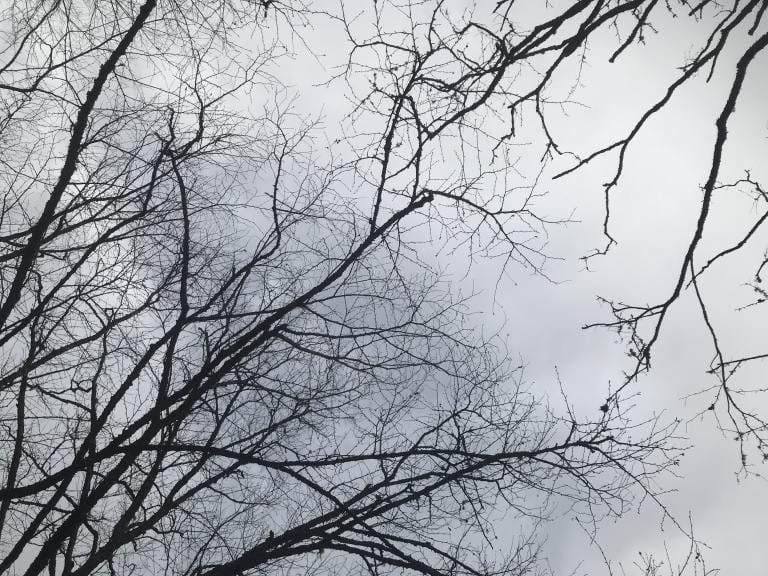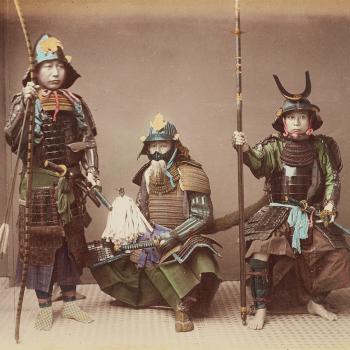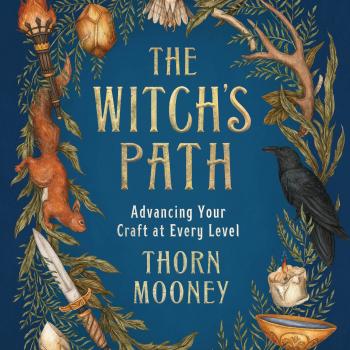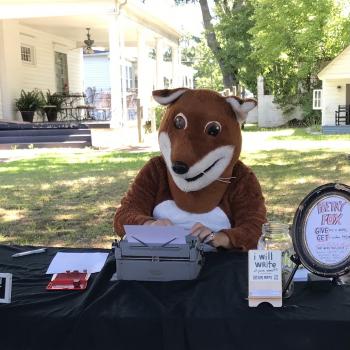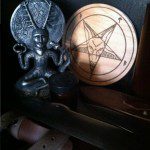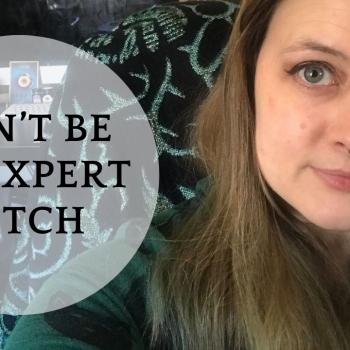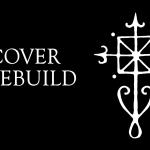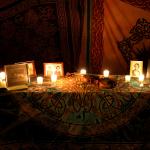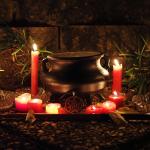My friend and initiate, Corvus, is in the process of starting a coven, and the other night we got to chatting about what it will mean for her to go forward, both as part of a community and as an autonomous high priestess. What if she does something that pisses off her upline? What if she gets out into the community and decides she doesn’t fit in? What if she has genuine encounters with the gods that take her in directions beyond where she went with me? What if she goes on to initiate someone who everyone else hates, and then no one else wants to hang out and circle anymore? WHAT IF SHE RUINS EVERYTHING.
Clearly, a lot of this is anxiety-driven and not based in our actual relationship. The whole reason she was elevated and given the support to go off and start her own group is because we knew she’d be great at it and would be a credit to the tradition.
A lot of this, no doubt, sounds totally ridiculous to some of you who are not involved in traditional covens, with their lineages and their hierarchies and all that hoo-ha. Maybe this is exactly why you’re not involved. It’s a tricky thing, having to negotiate belonging in a lineaged tradition. It can feel like you’re being watched all the time, and like you’ve always got to answer for your choices. Every one of us has heard horror stories about what happens to people who cause too much offense, stray too far from what’s accepted, or don’t build the connections necessary to ensure that you and yours are recognized at the community table.
But the truth is that it isn’t just traditional covens that deal with this kind of thing. We’re all part of communities, all subject to wrestling with insider/outsider status, even if that struggle doesn’t happen out in public, and even if it doesn’t have neat titles and lineages attached to it. Just by claiming certain words—witch, Wicca, Pagan, polytheist, priest, priestess—we open ourselves up to scrutiny. We’re constantly arguing over what those words mean, who gets to use them, and how. This is one thing that community seems to do well all the time: it creates a barrier between who is and who isn’t.
But we know those words exist in flux, and communities do, too. They shift and change, grow and recede. Even healthy ones see their share of drama from time to time. Even in a tradition that claims to hold fast to particular methods, beliefs, and ideals, if you are insular and you stand completely still you will eventually find—when you visit another coven, go to a festival, or simply join a Facebook group—that everyone else seems to have shifted. And at that point where is the tradition? Have you left it or have they left you?
I don’t know that this is a problem, especially if you’re already of the mindset that everything changes, even the things that people swear never change, but it lies at the root of so much anxiety in so many of my own spiritual communities.
If Corvus practices her Craft honestly and consistently, she will most surely end up in a different place from my own. She will have personal encounters with the gods that won’t be about me or my relationship with them. How could she not? She will bring in different people and lead a different coven because we are different people with different ambitions and different perspectives. And thank the gods for that.
Ultimately, we have to be secure in ourselves, before we can look to wider communities to help us define ourselves. The community will change and move (and it may also fail and break your heart), and you may at times be insider or outsider, but you can only control yourself. We build traditions because we can’t help it, I think, whether we identify as “traditional” or not. They can serve us or not, but that’s the question I think we need to be constantly asking: what does this serve? It may be your chosen family, your boundary line (because these are good and necessary sometimes, too), your support. But it can also be a cage, I think, if we adhere to things mindlessly. This is why solitary practice is so important and why introspection is so critical in any practice of witchcraft. You have to ask and answer these questions on your own.
Below is a video from my YouTube channel, which I’ve had for almost a decade. If you’re interested in hearing more thoughts on this subject, they are here! Be warned that these videos are shot vlog-style and are nor scripted or edited.

